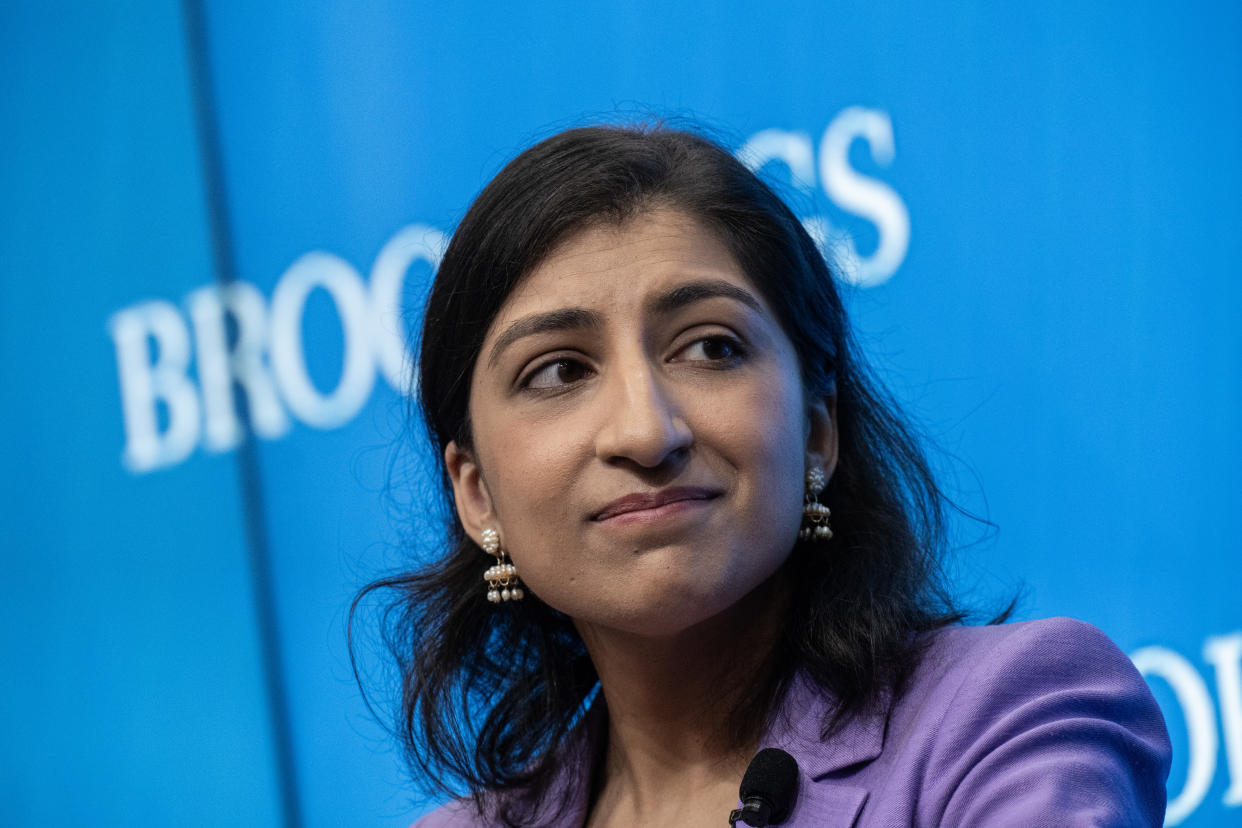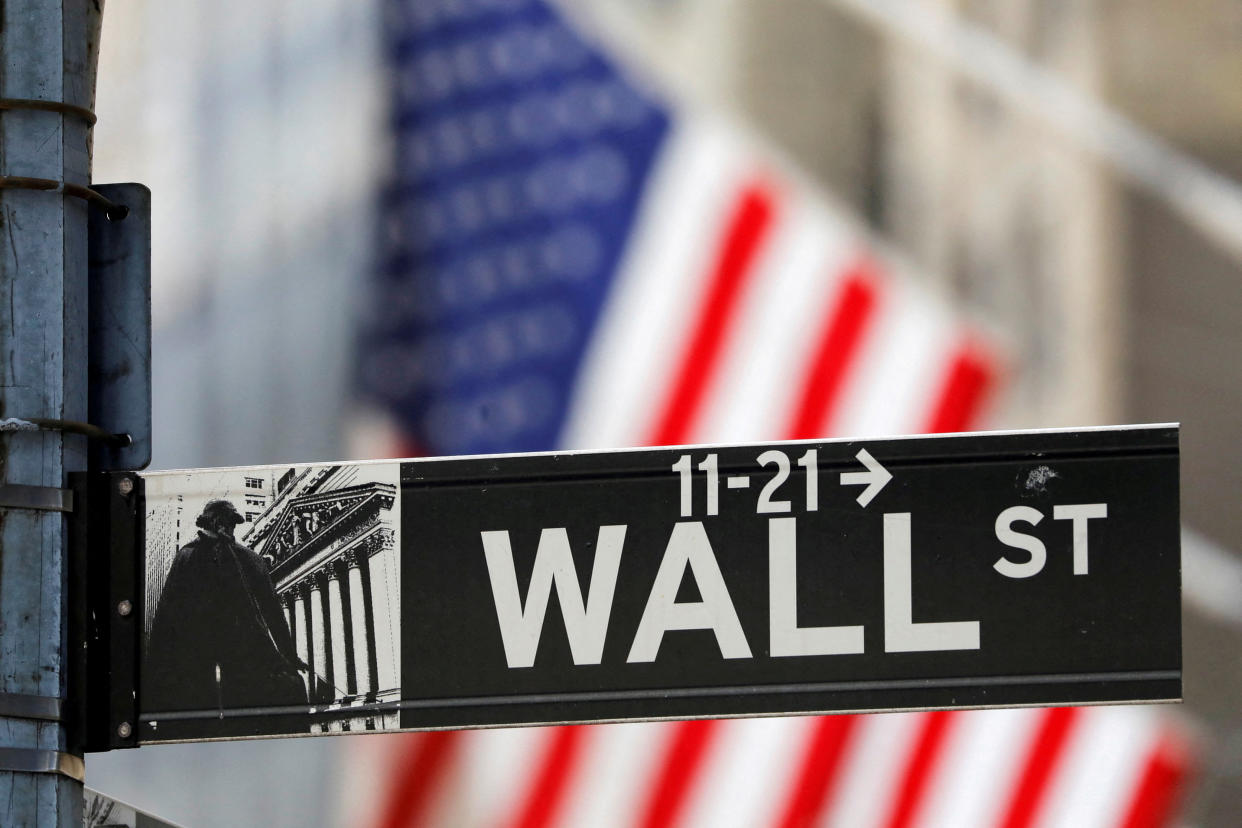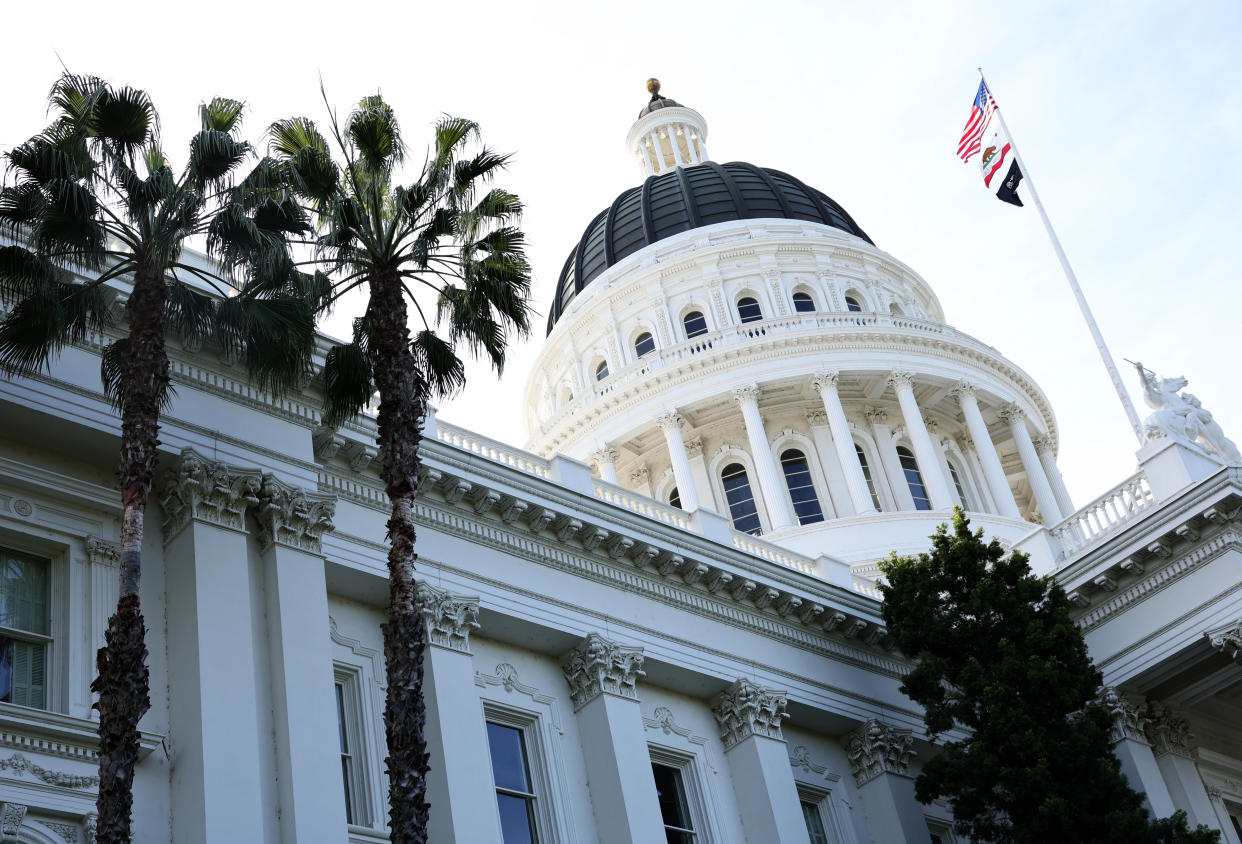FTC's noncompete ban could reshape the US workplace
The Federal Trade Commission’s decision this past week to outlaw nearly all noncompete agreements is a high-stakes shift in US law that could restructure the balance of power between businesses and workers.
The rule means it will become easier for millions of US workers to leave their existing jobs to work for a competing company or start their own.
Companies say it will become harder for them to protect trade secrets and confidential information.
A legal battle is already underway to decide whether this change will be allowed to take effect at the end of August or early September.
"If the rule is permitted to stand, it will mark a significant departure from hundreds of years of jurisprudence and law in the US," Alston & Bird’s labor and employment law head Chris Marquardt told Yahoo Finance.

The rule applies to employees and independent contractors across industries, from doctors and engineers to fast-food workers and salespeople. With few exceptions, it also applies retroactively.
There are some exceptions. One is for noncompete employment agreements already reached with company CEOs, presidents, and senior business executives who have "policy making" authority and are paid more than $151,164 per year.
But new agreements with those executives will not be permitted in the future.
"That's a really narrow exception to the rule … it is only going to apply to a handful of people, probably within large organizations," Marquardt said.
Not all industries will be subject to the rule, however. Some banks, certain nonprofits such as healthcare providers, and stockyards will not have to comply.
On Wall Street, that could mean traditional banks might be able to maintain more control over departing workers than, say, private equity firms or hedge funds.

A different exception permitted by the FTC allows the use of noncompete agreements to protect a company’s interests in the event that the company is sold.
Bosses are not letting the rule go through without a fight. In the days following the FTC’s announcement, there were two lawsuits filed in Texas federal district court, including one by the US Chamber of Commerce.
They argue that the FTC’s nonelected commissioners, who voted 3-2 down party lines to approve the rule, had no authority to strip workers and companies of contractual rights.
Instead, they argue, only states are empowered to regulate such agreements between those parties.
Some states have banned them altogether. California, for example, outlawed noncompete agreements based on concerns that they prevent worker mobility and keep people from innovating and from leaving companies to start their own.
Studies to determine whether that's true "are not fully baked," said Kate Perrelli, co-chair of Seyfarth’s national trade secrets, computer fraud, and noncompetes practice group.
The Chamber claims the FTC rule will force businesses and workers into pricey and ineffective court battles.

Employers, it says, will sue to protect their confidential information, and highly skilled workers may claim the agency illegally usurped their right to bargain for increased compensation in exchange for noncompete agreements.
James Witz, co-chair of Littler’s unfair competition and trade secrets practice group, said his business clients have expressed concern that the rule will put their most valuable know-how at risk, along with their ability to protect their investment in employees.
Witz’s co-chair Melissa McDonagh added that clients are also worried the rule is too ambiguous about whether alternative trade secret protections like nonsolicitation and nondisclosure agreements are legal if the FTC deemed them overbroad.
Those and other so-called restrictive covenants can dissuade workers from sharing secret company information with competitors.
Perrelli said she would not be surprised if a judge temporarily blocks the rule from taking effect while the challenges play out in court.
"And then it will make its way up and probably end up at the Supreme Court," Perrelli said.
Either way, employment attorney Roger Feicht said the rest of the business world needs to start rethinking their employment agreements.
"Regardless of the size or sector, businesses must be ready to comply with the rule if it survives legal challenge,” he said.
Click here for in-depth analysis of the latest stock market news and events moving stock prices.
Read the latest financial and business news from Yahoo Finance
